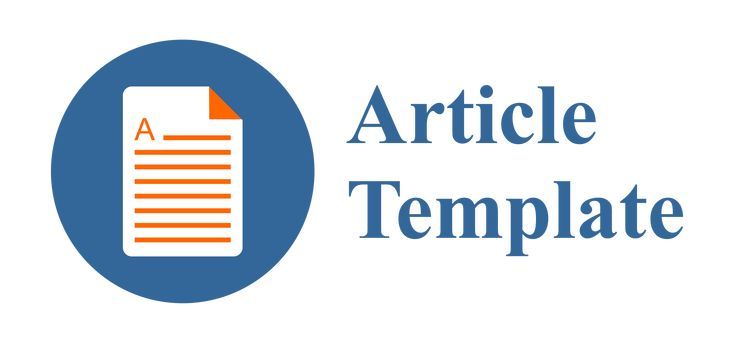Media Pembelajaran Perilaku Hidup Bersih dan Sehat menggunakan Metode Gamifikasi berbasis Website
DOI:
https://doi.org/10.29408/edumatic.v7i1.17463Keywords:
gamification, learning, clean and healthy living behaviour, system usability scale (sus), websiteAbstract
Students have difficulty in understanding the learning of clean and healthy lifestyle behavior (PHBS) using the lecture method because it is considered boring and less interactive. They also hesitate to ask questions when they don't understand the material. This research aims to create Learning Media for clean and healthy lifestyle behavior using a website-based gamification method, in order to increase student learning motivation by providing interactive learning media and evaluating the feasibility and usefulness of learning media. The research used a Research and Development approach with the ADDIE model, and data collection techniques through observation. This research involved 1 media expert, 2 material experts, teachers, and 30 respondents of 4th and 5th grade students at SD Negeri 3 Purwokerto Kulon as research subjects. Usability evaluation is carried out using the SUS (System usability scale) method. The result of this research is PHBS learning media using website-based gamification method, consisting of 10 pages. Based on the Validation Test by media experts getting a final score of 88.88%, material experts getting a final score of 82.77% and usability evaluation of website-based PHBS learning media by 30 respondents, resulting in a final score of 78.41. Based on the results of the validation and evaluation tests that have been carried out, it can be concluded that this learning media is suitable for use and falls into the acceptable category.
References
Aisyah, S., Saputra, E., Rozanda, N. E., & Ahsyar, T. K. (2021). Evaluasi Usability Website Dinas Pendidikan Provinsi Riau Menggunakan Metode System usability scale. Jurnal Ilmiah Rekayasa Dan Manajemen Sistem Informasi, 7(2), 125–132.
Dewangga, K., Emanuel, A. W. R., & Widhiyanti, K. (2022). Perancangan Gamifikasi Pada Proses Implementasi ERP Menggunakan Metode Accelerate SAP. Teknika, 11(3), 225–234. https://doi.org/10.34148/teknika.v11i3.552
Febriana, D., & Iswari, L. (2023). Pengembangan Aplikasi Pembelajaran Bahasa Arab untuk Pemula Berbasis Web. 08(02), 100–109. https://doi.org/https://doi.org/10.33506/insect.v8i2.2246
Handayani, F. S., & Adelin, A. (2019). Interpretasi Pengujian Usabilitas Wibatara Menggunakan System usability scale. Techno.Com, 18(4), 340–347. https://doi.org/10.33633/tc.v18i4.2882
Hikmawan, M. F. F., & Irfansyah, I. (2022). Buku Prestasi Santri berbasis Digital menggunakan Prinsip Postel. Edumatic: Jurnal Pendidikan Informatika, 6(2), 354–363. https://doi.org/10.29408/edumatic.v6i2.6691
Julianti, R., Nasirun, M., & Wembrayarli. (2018). Pelaksanaan PHBS Di Lingkungan Sekolah. Ilmiah Potensia, 3(2), 11–17.
Kaap, K. M., & Cone, J. (2012). What every chief learning officer needs to know about games and gamification for learning. Department of Instructional Technology and Institute for Interactive Technologies, 1–5.
Kemenkes RI, S. J. (2018). Profil Kesehatan Indonesia 2014. Kementerian Kesehatan Republik Indonesia. website: http://www.kemkes.go.id
Kemenkes RI, S. J. (2021). Profil Kesehatan Indonesia 2021. In F. Sibuea, B. Hardhana, & W. Widiantini (Eds.), Pusdatin.Kemenkes.Go.Id. Kementerian Kesehatan Republik Indonesia Jalan. http://www.kemkes/go.id
Manusakerti, A., & Wibowo, M. (2022). Rancangan dan Evaluasi Usability Pada Aplikasi Website Media Pembelajaran Cyberbullying Menggunakan Metode Gamifikasi. Jurnal Media Informatika Budidarma, 6(4), 2140-2147. https://doi.org/10.30865/mib.v6i4.4627
Maulana, M. I., & Junianto, E. (2022). Penerapan Model Addie Dalam Pembuatan Permainan Edukasi Bahasa Inggris Berbasis Android. Jurnal Responsif : Riset Sains Dan Informatika, 4(1), 12–22. https://doi.org/10.51977/jti.v4i1.680
Mubarok, A. Y., & Chotijah, U. (2021). Playability Evaluation using the Heuristic Evaluation of Playability Method in Warcraft 3 Reforged. Edumatic: Jurnal Pendidikan Informatika, 5(2), 344–351. https://doi.org/10.29408/edumatic.v5i2.4215
Nahira, & Armita, D. (2020). Pemanfaatan Teknologi Pembelajaran Di Masa Pandemi Covid-19. Qiyam, Jurnal Al, 3(1), 68–74. https://doi.org/10.33648/alqiyam.v3i1.200
Nasiatin, T., & Hadi, I. N. (2019). Determinan Perilaku Hidup Bersih dan Sehat Pada Siswa Sekolah Dasar Negeri. Faletehan Health Journal, 6(3), 118–124. https://doi.org/10.33746/fhj.v6i3.111
Paradise, P., & Wibowo, M. (2021). Pengembangan Learning Management System (LMS) dengan Menerapkan Video Based Learning dan Gamification Dalam Meningkatkan Motivasi dan Keterlibatan Mahasiswa. Jurnal Media Informatika Budidarma, 5(3), 929-936. https://doi.org/10.30865/mib.v5i3.3087
Purwono, Setyawati, E., Nisa, K., & Wulandari, A. (2021). Strategi Gamifikasi Sebagai Peningkatan Motivasi Kuliah Pemrograman Website Pada Masa Pandemi Covid19. JOINTECS (Journal of Information Technology and Computer Science), 6(3), 129–136. https://doi.org/10.31328/jointecs.v6i3.2459
Regita, A. P., & Rani, S. (2023). Gamifikasi Pembelajaran Matematika Untuk Anak Smp Menggunakan Metode Design Thinking Berbasis Android. JIKA (Jurnal Informatika), 7(1), 117-124. https://doi.org/10.31000/jika.v7i1.7550
Setiyono, & Hasibuan, M. S. (2022). Pengukuran Kepuasan Pengguna E-Learning Menggunakan Metode Evaluasi Heuristik dan System usability scale. Jurnal Teknologi Informasi Dan Ilmu Komputer, 9(3), 93–102. https://doi.org/10.25126/jtiik.2022924631
Sugiyono. (2013). Metode penelitian kuantitatif, kualitatif dan R&D. Bandung: Alfabeta.
Utami, O. N., Setiawati, K. E., Dina, E. S., Hafida, M., & Salsabila, U. H. (2023). Perkembangan Teknologi Informasi Dan Komunikasi Dalam Pembelajaran Pendidikan Agama Islam. Jurnal Pendidikan Islam, 9(1), 46–54. https://doi.org/10.37286/ojs.v9i1.218
Wulan, H. S., & Hasiholan, L. B. (2023). Upaya Penerapan Perilaku Hidup Bersih Dan Sehat Setelah Pandemi Covid-19 Di Kelurahan Gemah Kecamatan Pedurungan Kota Semarang. Majalah Ilmiah Inspiratif, 9(16), 61–81.
Yosli, R., & Maksum, H. (2021). Pengembangan Media Pembelajaran Bahasa Inggris yang Praktis dan Efektif Menggunakan Moodle. Edumatic: Jurnal Pendidikan Informatika, 5(2), 261–270. https://doi.org/10.29408/edumatic.v5i2.4132
Downloads
Published
How to Cite
Issue
Section
License
All articles in this journal are the sole responsibility of the authors. Edumatic: Jurnal Pendidikan Informatika can be accessed free of charge, in accordance with the Creative Commons license used.

This work is licensed under a Lisensi a Creative Commons Attribution-ShareAlike 4.0 International License.




